This afternoon, May 25, the National Assembly discussed in groups the adjustment of investment policies for the National Target Program on Socio -Economic Development in Ethnic Minority and Mountainous Areas for the 2021-2030 period.
Participating in the discussion session, delegate Ho Thi Minh, Deputy Head of the Provincial Ethnic Minorities Committee, expressed her agreement that adjusting the investment policy of the National Target Program for Socio-Economic Development in Ethnic Minority and Mountainous Areas for the period 2021 - 2030 is necessary. The delegate said that this is a new National Target Program, including many projects and sub-projects with the participation of many ministries, branches, and central agencies presiding over and managing projects, sub-projects, and component contents.

Delegate Ho Thi Minh, Deputy Head of the Provincial Ethnic Committee
With the attention of the entire political system, recently, the Program has been deployed in localities of ethnic minorities and mountainous areas, initially creating positive impacts on people's lives, especially in areas of particularly difficult communes and villages, ethnic minorities and mountainous areas.
However, in the process of organizing and implementing the Program, some difficulties and problems arose, affecting the disbursement progress and implementation results. It is necessary to propose adjustments to some investment policy contents of the Program.
Regarding the implementation of the National Target Program, according to delegates, there are still some difficulties in some contents, projects, and sub-projects, and we are continuing to request competent authorities to adjust related documents.
Meanwhile, the Program implementation time is now only over 01 year, the disbursement rate of career capital is low, especially projects and sub-projects on production support. A number of documents on Program management have been revised and supplemented by the Government , but through implementation, localities still encounter some difficulties.
Typically, some projects and sub-projects related to solving pressing issues such as solving residential land, production land, domestic water, and production development projects are still slow to implement. Therefore, delegates commented that completing the targets and objectives of the Program by 2025 related to the content such as basically completing the settlement of residential land and production land for the people is extremely difficult, posing many challenges in the context of the very short implementation time of the Program.
Regarding the cause of the above difficulty, the delegate said that it was difficult because there was no more land, while the support budget for difficult areas was very low, the remaining land areas that needed to be reclaimed and created flat land for people had quite a large cost. For example, Quang Tri province stipulated that the support limit for poor households without land or land that had not been allocated was 2 hectares of forest land, 1 hectare of production land, and localities that did not have enough land would arrange funding to support people to settle down in a stable manner in the form of interleaving with a support budget of only 22.5 million VND.
Regarding housing support policies, delegates emphasized: the beneficiaries are poor and near-poor households, so it is very difficult for households to contribute, and for local authorities, the 10% contribution is not enough to build houses that meet the 3-hard standards as instructed, so most localities must coordinate with the Vietnam Fatherland Front at all levels to provide additional funding.
Regarding clean water, delegates said that the support policy is too small, fragmented, and ineffective, and proposed to keep the investment package as is, such as investing in 500KV lighting, so that the investment in building new clean water projects can meet standards and be long-term and sustainable in the form of state investment, people use, people pay. Although a large amount of resources are spent, the effectiveness will be long-term, while at present, the provision of tanks, drilling wells, and self-flowing water systems can only be used for a certain period of time.
Regarding the scope, the subjects of implementation are enterprises, cooperatives, cooperative unions, and economic organizations operating in particularly difficult villages and communes. These are subjects within the scope of the Program but have not been mentioned in the submission and the review reports.
The fact that the guidance document requires the above enterprises to have 70% or more of their total employees being ethnic minorities, this regulation causes difficulties for enterprises operating in areas outside of particularly difficult communes, or in phase 1, they are particularly difficult communes, but in phase 2, they have escaped from being particularly difficult communes, but this enterprise is creating conditions for ethnic minority employees living in particularly difficult communes to grow medicinal plants and purchase and consume output products. In the above case, is this enterprise eligible to enjoy support policies or not?
Therefore, delegates proposed that the Government have regulations to amend and supplement, and at the same time carefully review the contents of the adjustment proposal so that the next phase of implementing the National Target Program will be effective.
Nguyen Thi Ly
Source







![[Photo] Hanoi morning of October 1: Prolonged flooding, people wade to work](https://vphoto.vietnam.vn/thumb/1200x675/vietnam/resource/IMAGE/2025/10/1/189be28938e3493fa26b2938efa2059e)









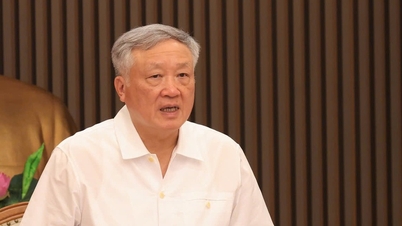













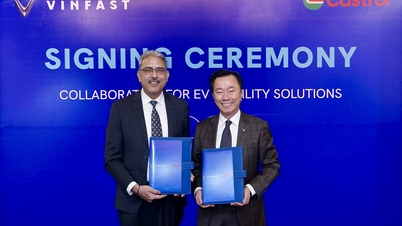

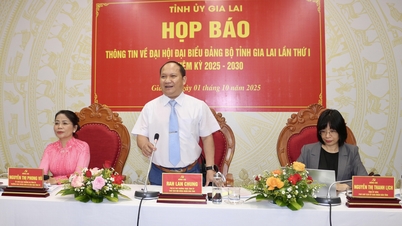

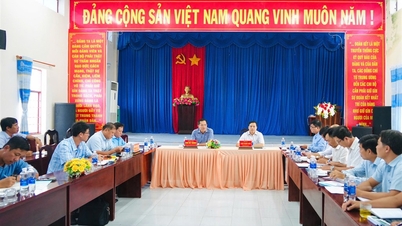

![[Photo] Panorama of the cable-stayed bridge, the final bottleneck of the Ben Luc-Long Thanh expressway](https://vphoto.vietnam.vn/thumb/1200x675/vietnam/resource/IMAGE/2025/9/30/391fdf21025541d6b2f092e49a17243f)




























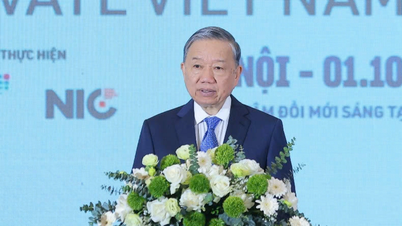







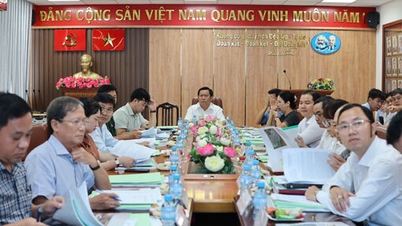

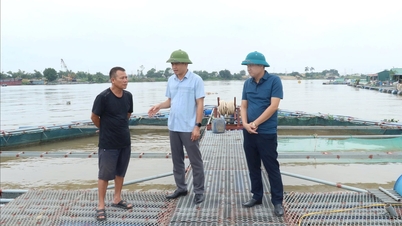

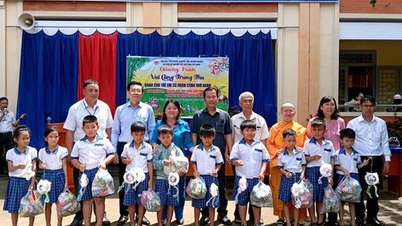

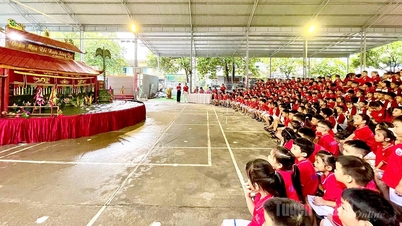














Comment (0)